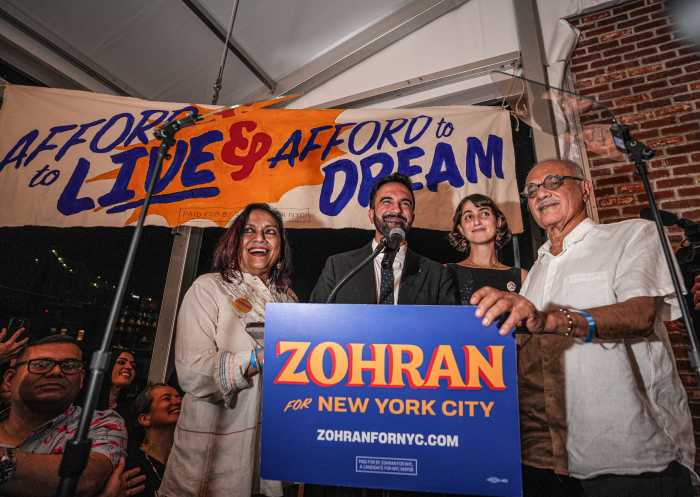
Les Payne had a favorite piece of advice for young reporters: Journalism begins when someone says no. Payne had little use for insider access, gossip or rewritten news releases. The purpose of the journalism he practiced and taught was to hold power accountable.
Those memories about the legendary journalist and editor were shared Tuesday at a funeral service at the Abyssinian Baptist Church in Harlem, where he was a dedicated parishioner. He died March 19 at age 76.
A co-founder of the National Association of Black Journalists, Payne made his reputation at Newsday, an affiliated publication of amNewYork, but his influence was international. Payne was part of the team that won the Pulitzer Prize in public service for tracking the flow of heroin from poppy fields in Turkey to the streets of New York. As an editor, he dispatched reporters around the globe who won five Pulitzer Prizes.
In 1976, Payne sneaked into South Africa and in a 11-part series exposed the punishing apartheid of the reigning Boer government and its undercount of blacks killed in the Soweto rebellion that year. As a result, he was banned from South Africa for a decade, invited back only when Nelson Mandela was released.
In recent weeks, the former Newsday assistant managing editor marked the 50th anniversary of the Kerner Commission report on the devastating race riots of the 1960s.
That report faulted newspapers and TV news for failing to report clearly on African-American life and for employing so few blacks to better shape and inform the reporting, what it called “white men’s eyes and white perspective.”
Payne’s career was dedicated to changing that.
In November, at his induction into the Hall of Fame of the Society of Professional Journalists, Payne spoke of the duty of journalism to speak truth to power. He recalled what brought him to the profession. It was a call from President Lyndon Johnson to Gen. William Westmoreland, to whom Payne was a press aide during the Vietman War, about a Washington Post story about a division of soldiers fighting under a Confederate flag. Johnson wanted the flags removed.
“That Post story convinced me of the power of the revealed facts reported by a free press, protected by the Constitution, which is determined to inform the public about what is going on,” he said at the induction ceremony.
Payne believed society would be better if journalists helped it know better. It’s a lesson to remember.




























